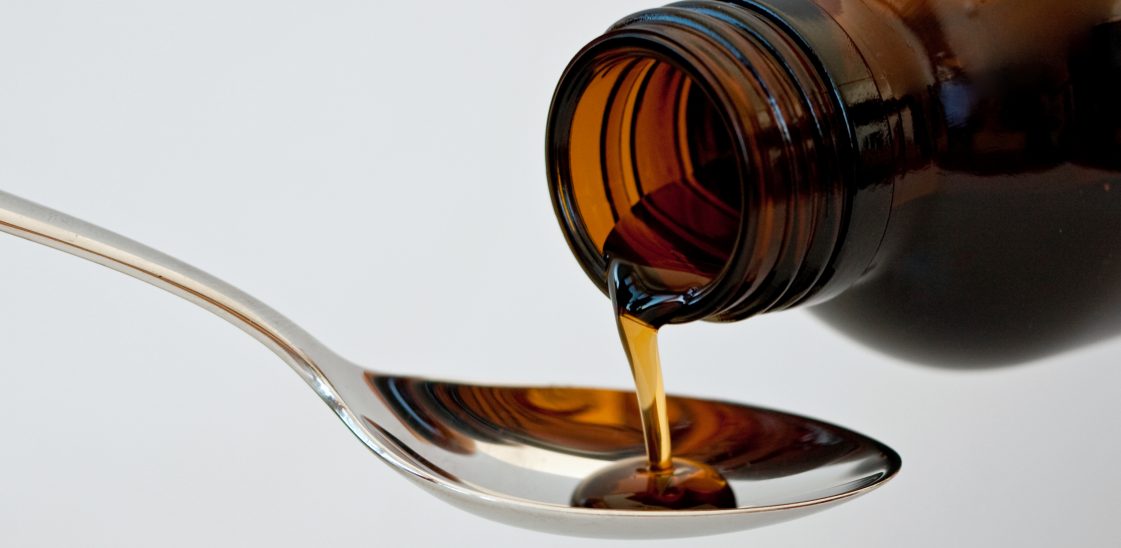
What is pholcodine?
Pholcodine is an opioid cough suppressant that has long been used to treat minor illnesses in the UK. However, following concerns about the safety of taking it with other medications, all pholcodine-containing medications have been recalled[1]. Below, we explore what this means for people in the UK with minor ailments.
What is pholcodine used for?
Pholcodine is an opioid related to morphine and codeine that has typically been used to relieve dry, unproductive coughs. These are coughs that don’t produce mucus. They’re called unproductive because there’s nothing to expel by coughing. As such, dry coughs can be a particularly frustrating symptom to have.
Dry coughs can have a range of a potential causes, including but not limited to[2]:
- Allergens or irritants in the throat
- Asthma or other respiratory problems
- Croup (in children)
- Gastroesophageal reflux disease (GORD) or acid reflux
- Post nasal drip
- Certain medications (such as those that treat high blood pressure)
- Smoking
You may also get a dry cough after having a wet or productive cough caused by colds or flu. Generally, dry coughs last for a week or two, but chronic dry coughs can last longer and have more serious causes[2].
Typically, pholcodine was used to treat the symptoms of dry coughs. Getting hold it didn’t require a prescription, but it was kept behind the counter in pharmacies due to the opioid content. As such, it couldn’t be bought off the shelf.
What does pholcodine do?
So how did pholcodine-based medications actually work to stop you coughing? Well, as mentioned previously, pholcodine is an opioid, related to morphine and codeine. All three of these medications work in roughly the same way: by blocking the nervous system. This means they intercept messages to and from the brain so they can’t get through to their destinations.
Pholcodine intercepts messages between the brain and the muscles involved in coughing. For example, this includes the intercostal muscles between your ribs. When something irritates your throat, a message is sent to the brain to let it know. The brain then sends a message to your coughing muscles telling them to get rid of whatever is causing the irritation. With a dry cough, though, there is nothing to cough up. Pholcodine prevents this automatic coughing response, easing the discomfort caused by dry coughs[3].
Can you still buy pholcodine?
Pholcodine has been on the market as a cough suppressant since the 1950’s, so it’s a well established medication. It was available to buy in a range of formats, including syrups, capsules and oral solutions.
Pholcodine was sold under various brands, including generic pharmacy brands. Here are some of the well-known products which contained pholcodine:
- Boots Night Cough Relief Oral Solution
- Boots Dry Cough Syrup 6 Years+
- Boots Day Cold & Flu Relief Oral Solution
- Cofsed Linctus
- Covonia Dry Cough Sugar Free Formula
- Day & Night Nurse Capsules
- Day Nurse
- Galenphol Linctus
- Galenphol Paediatric Linctus
- Galenphol Strong Linctus
However, following a review by the Medicines and Healthcare products Regulatory Agency (MHRA), all products containing pholcodine have been recalled from the market. You will no longer be able to purchase pholcodine-based medicines in the UK as of 2023[1]. Instead, you can use alternative treatments, such as Chloralieve’s dual action sore throat lozenges which are the UK’s number 1 best selling pharmacy sore throat lozenge.
Why were pholcodine treatments recalled?
In early 2023, evidence came to light suggesting that taking pholcodine may lead to undesirable effects if the individual later goes under general anaesthetic. General anaesthetic uses neuromuscular blocking agents (NMBAs) to prevent the spontaneous movement of skeletal muscles while patients are unconscious for surgery, improving surgical conditions. However, evidence suggests that there may be a slightly greater risk of patients having an allergic reaction to these NMBAs if they’ve taken it during the previous 12 months[1].
It’s important to be aware that whether you’ve taken it or not, the risk of anaphylaxis under general anaesthetic is very small. However, the slight increase in risk has led authorities to pull all pholcodine products from the market. If you have a stock of pholcodine-containing products at home, it’s recommended that you don’t use them, to avoid this unfortunate side effect[1]. Instead, you should either ask your pharmacist to recommend a different product such as Ultra Chloraseptic’s soothing anaesthetic throat spray, or try to relieve your symptoms with at-home sore throat remedies.
If you have taken pholcodine within the last 12 months, there’s no need to panic. The risks we’ve outlined increase only when pholcodine is combined with the NMBAs in general anaesthetic, so you’re unlikely to be affected unless you’re having surgery or dental treatment[1]. Make sure your doctors are aware of the fact if you’re going into hospital for surgery, and alert your dentist if you need general anaesthesia for any dental treatments. Otherwise, if you’re at all concerned about pholcodine or want advice about what to do with medications you can’t use now, speak to your pharmacist or GP for more information.
Resources